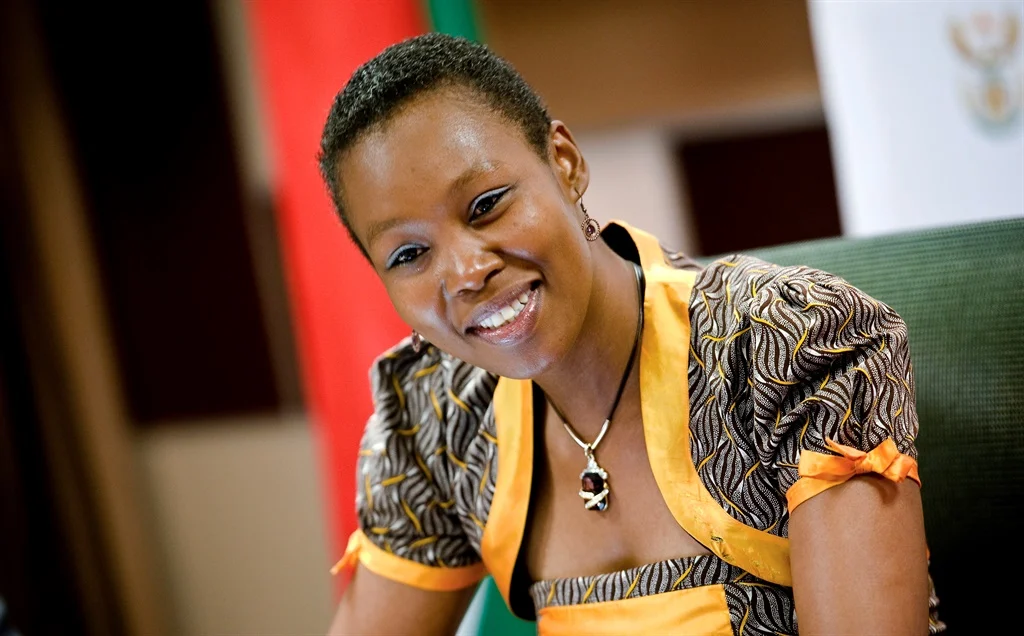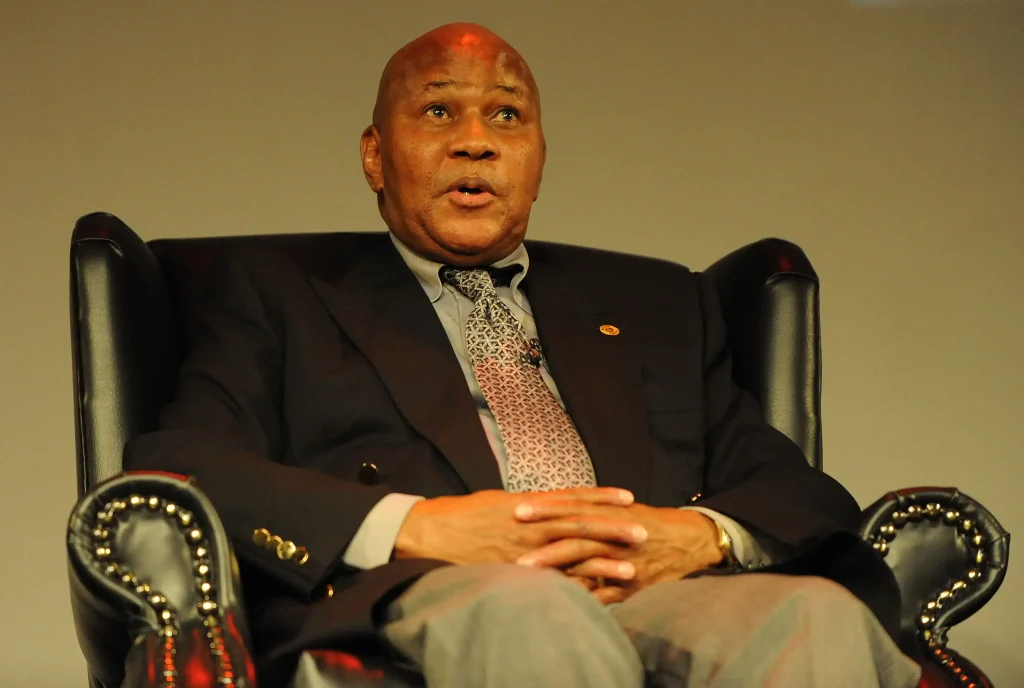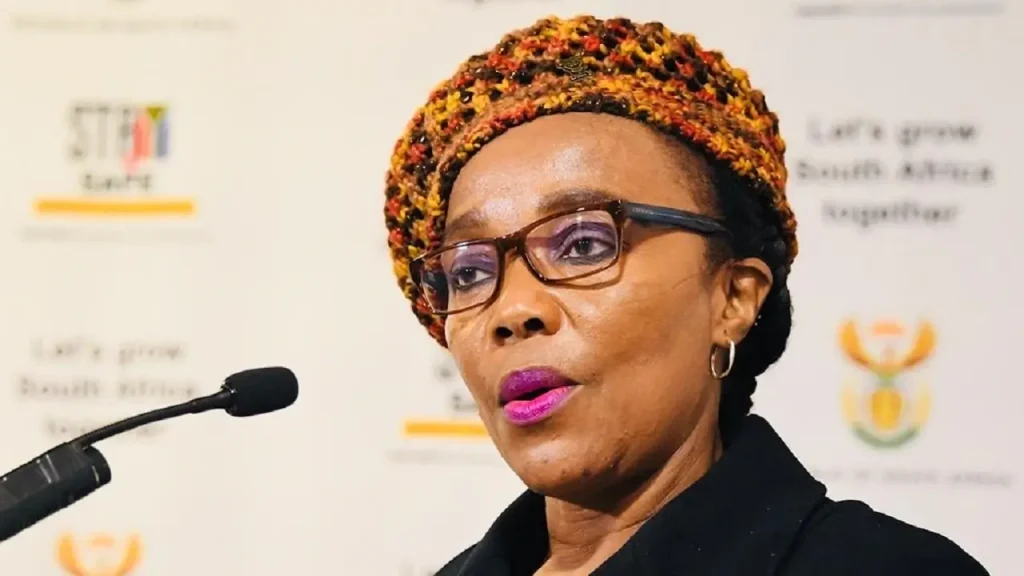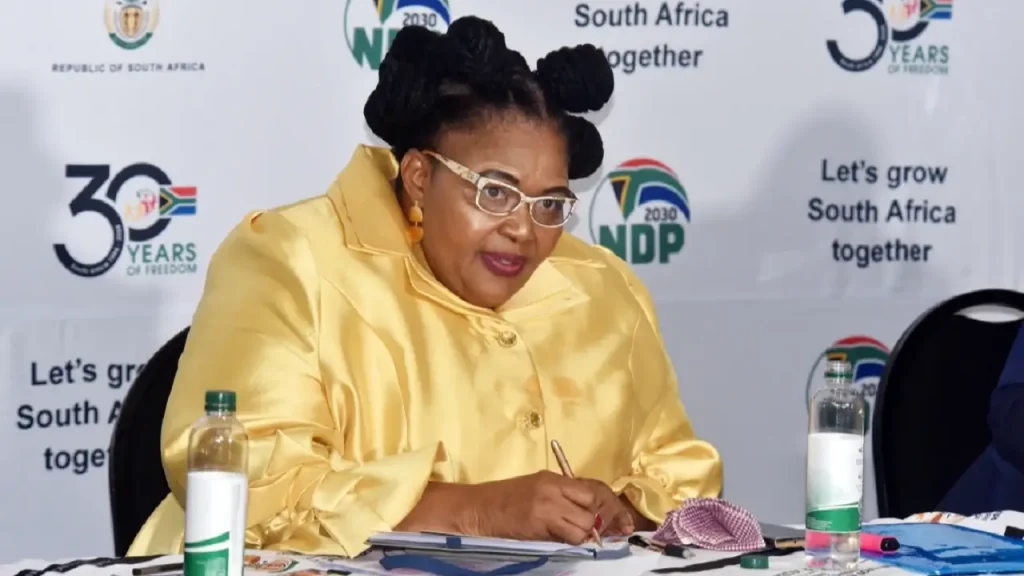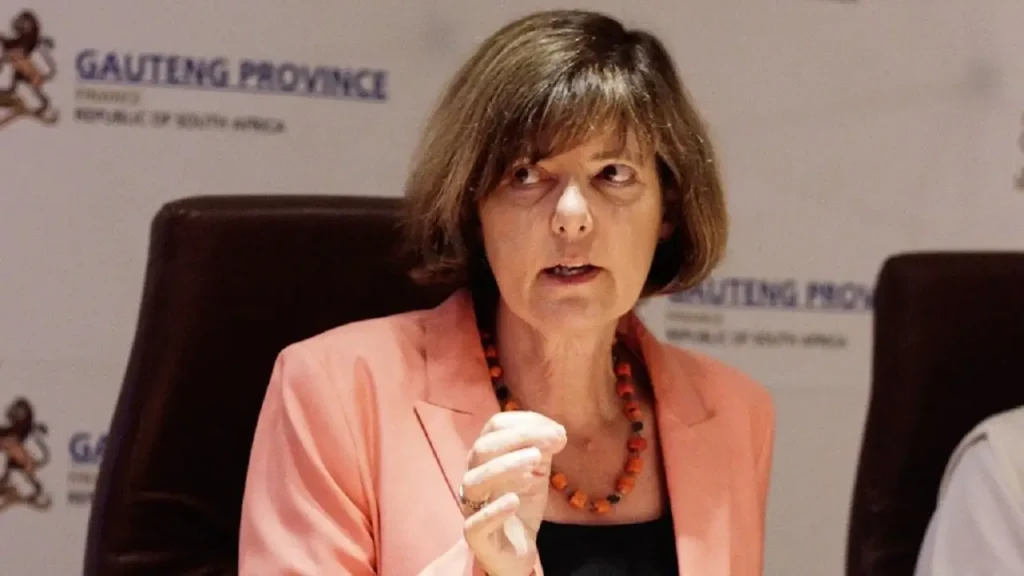Stella Tembisa Ndabeni-Abrahams is a prominent South African politician, well-known for her contributions to public service and her leadership within the African National Congress (ANC). As a current member of the National Executive Committee (NEC) and a former Minister of Communications and Digital Technologies, she has made significant strides in South Africa’s political landscape. Below are 21 essential facts about her life and career.
1. Early Life and Background Stella Ndabeni-Abrahams was born on June 30, 1978, in Sakhela, a village near Mthatha, in the Eastern Cape. Raised as the eldest of six children by parents who were both pastors, she grew up in a deeply spiritual environment, which shaped her worldview.
2. Education and Career Development Ndabeni-Abrahams attended Holy Cross Senior Secondary School in Mthatha before furthering her studies in various fields. She earned several tertiary diplomas that laid the foundation for her career in both public service and politics.
3. Joining the ANC Youth League Her political journey began at a young age. She joined the ANC Youth League (ANCYL) in 1999 and became involved in local activism. In 2008, she was elected to the ANCYL’s National Executive Committee, signaling her growing prominence in the party.
4. Rise Through the Ranks After leaving high school, Ndabeni-Abrahams started working as an administrator for the Eastern Cape provincial government. She then managed HIV/AIDS support projects, demonstrating a commitment to improving community health and welfare.
5. First Election to Parliament
In 2009, Ndabeni-Abrahams made her first entry into national politics by winning a seat in the South African National Assembly. Representing the ANC from the Eastern Cape, she quickly became known for her strong political presence, further solidifying her position as an influential figure in South African politics.
6. Deputy Minister of Communications
In 2011, at just 33 years old, Ndabeni-Abrahams was appointed as the Deputy Minister of Communications, making her the youngest deputy minister in the history of South Africa’s democratic government. During her tenure, she became known for her active use of social media and her vibrant public presence.
7. Key Advocate for Media Transformation
During her time in office, Ndabeni-Abrahams was a strong advocate for transforming South Africa’s media landscape. She pushed for initiatives such as the transformation of print media and the regulation of government content broadcasted by the South African Broadcasting Corporation (SABC).
8. Minister of Communications and Digital Technologies
In 2018, President Cyril Ramaphosa appointed her as the Minister of Communications and Digital Technologies. In this role, she was tasked with unifying the Ministry of Communications and the Ministry of Telecommunications and Postal Services, overseeing policies related to media, internet access, and telecommunications in the country.
9. Pushing for Fourth Industrial Revolution (4IR) Policies
As Minister of Communications, Ndabeni-Abrahams became a key figure in pushing South Africa into the Fourth Industrial Revolution (4IR). She championed efforts to harness technology for economic growth, aligning with President Ramaphosa’s vision to transform South Africa into a competitive player in the global digital economy.
10. The Controversy Over COVID-19 Lockdown Breach
In April 2020, Ndabeni-Abrahams became embroiled in a controversy after she was photographed violating South Africa’s strict COVID-19 lockdown regulations by attending a lunch with several individuals. This breach led to her public apology, a reprimand from President Ramaphosa, and a two-month special leave from her ministerial duties.
11. Prominent Role in the ANC
Beyond her cabinet roles, Ndabeni-Abrahams has been a prominent member of the African National Congress (ANC). She has been an influential figure within the party’s National Executive Committee (NEC) and served as a member of its National Working Committee (NWC), ensuring her voice played a critical role in shaping the ANC’s direction.
12. Minister of Small Business Development
On 5 August 2021, she was reshuffled into a new role as the Minister of Small Business Development. In this capacity, Ndabeni-Abrahams is focused on stimulating job creation and economic growth by supporting small businesses and addressing challenges like reducing red tape for entrepreneurs.
13. Strategic Plan for Small Business Growth
In 2022, Ndabeni-Abrahams’ ministry launched the National Integrated Small Enterprise Development Plan, a 10-year strategic initiative aimed at developing small businesses in South Africa. This plan includes measures for enhancing access to finance, reducing bureaucratic obstacles, and fostering a supportive business environment.
14. Early Life in Politics and the ANC Youth League
Ndabeni-Abrahams’ political journey began when she was recruited to the ANC as a young child in 1989, even before the party was unbanned. Her involvement in the ANC Youth League started early, and she rose to the position of provincial executive committee member in the Eastern Cape before becoming a national executive committee member in 2008.
15. Tensions with the ANC Youth League
Her political career faced challenges when she fell out with the ANC Youth League’s leadership, including Julius Malema, in 2010. Ndabeni-Abrahams was expelled from the Youth League’s National Executive Committee after a conflict of interest regarding internal disputes, marking a pivotal moment in her career that led to her alignment with then-President Jacob Zuma.
16. Commitment to Digital Inclusion
During her time as Minister of Communications, Ndabeni-Abrahams focused on expanding South Africa’s internet penetration, with the goal of reaching 80% by 2024. Her tenure saw efforts aimed at reducing mobile data costs and improving broadband access across the country, benefiting rural and underserved communities.
17. Efforts to Improve Media Freedom
In a 2019 altercation, Ndabeni-Abrahams faced backlash when she was filmed attempting to block media coverage of a protest. The incident raised concerns about censorship, but Ndabeni-Abrahams later apologized and reaffirmed her commitment to protecting media freedom in South Africa.
18. Active Role in the ANC’s National Conference
At the ANC’s 55th National Conference in 2022, Ndabeni-Abrahams secured a prominent position by being elected to the party’s National Executive Committee (NEC) for a five-year term. This election reflects her strong support base within the ANC and her continued leadership within the party.
19. Political Shift to Support Ramaphosa
Although initially seen as an ally of former President Jacob Zuma, Ndabeni-Abrahams shifted her political support to Deputy President Cyril Ramaphosa ahead of the ANC’s 2017 National Conference. She played an important role in Ramaphosa’s rise to the presidency, aligning herself with his reform agenda.
20. Re-election to the Eastern Cape Provincial Executive
In 2022, she was re-elected to the ANC’s Provincial Executive Committee of the Eastern Cape. Ranking sixth among the committee’s 30 members, her re-election demonstrates her continued influence in her home province.
21. Personal Life and Family
Stella Ndabeni-Abrahams married Thato Abrahams in 2012. She is a mother to three children and is known to balance her demanding political career with her family life. A devout Christian, she has always emphasized the importance of faith in guiding her political and personal decisions.

